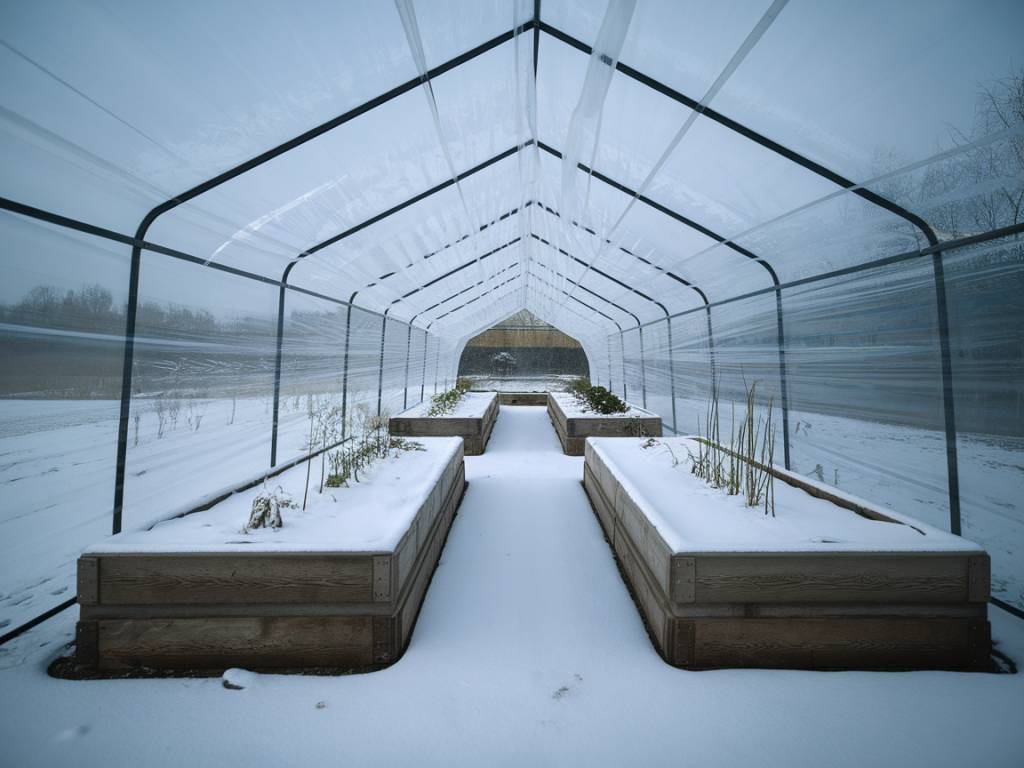As colder months approach, it’s essential to prepare our gardens to thrive even in the harshest conditions. One of my favorite methods is insulating raised beds to ensure they stay productive and healthy throughout winter. This natural approach blends perfectly with my permaculture principles, and it’s easier than you might think.
The Importance of Raised Beds for Winter Gardening
Raised beds offer numerous advantages for both the plants and the gardener. They improve drainage, allow better soil management, and keep garden pests at bay. When autumn turns to winter, insulating these raised beds can extend the growing season and protect your plants from frost damage.
Choosing the Right Materials
Insulating raised beds starts with selecting the best materials. Natural and sustainable products fit the permaculture ethos I’ve embraced. Some excellent options for insulation include straw, leaves, and even specific fabrics designed for garden use.
- Straw: Easily accessible and biodegradable, straw can be spread over raised beds to provide an insulating layer.
- Leaves: Fallen leaves are nature’s gift. They work as an excellent insulating material and enrich the soil as they decompose.
- Garden Fabrics: Burlap and other natural fabrics can be used to cover beds directly. These materials offer good insulation while allowing moisture and air to circulate.
Layering Your Raised Beds
Proper layering ensures that your raised beds retain heat during colder months. Here’s the step-by-step process I usually follow:
- First Layer – Compost: Before adding any insulation, I lay down a thick layer of compost. This not only provides nutrients but also generates heat through decomposition.
- Second Layer – Mulch: Apply a generously thick layer of organic mulch. This acts as the primary insulator, trapping heat within the soil.
- Third Layer – Straw or Leaves: Add a thick layer of straw or leaves on top of the mulch. These materials further insulate the soil and can be easily removed when temperatures rise.
Utilizing Covers and Cloches
Row covers and cloches can add another layer of protection for your raised beds. While they’re not strictly ‘natural,’ they align well with sustainable practices when used correctly. Here’s what I often use:
- Row Covers: These lightweight fabrics can be draped over raised beds to protect crops from frost while allowing light and moisture to penetrate.
- Cloches: Perfect for individual plants or small sections, cloches provide a greenhouse-like environment. They can be made from repurposed materials such as old bottles or purchased from garden centers.
The Permaculture Approach to Winter Gardening
In line with permaculture principles, winter gardening can become a harmonious balance of giving and taking. Here are some tips I follow to ensure a sustainable and productive winter garden:
- Planting Hardy Varieties: Opt for vegetables and herbs that thrive in cooler temperatures, such as kale, leeks, and winter lettuce.
- Companion Planting: Use companion plants that mutually benefit each other, such as garlic with strawberries to ward off pests or carrots with onions to improve soil health.
- Soil Health: Rotate your crops and add organic matter to build nutrient-rich soil. Cover crops (green manures) can be planted to enrich and protect the soil during winter.
The Role of Microclimates
Understanding and utilizing microclimates in your garden can make a significant difference in winter success. Identify areas that naturally retain heat, such as spots close to the house or near stone walls.
- South-Facing Beds: Raised beds on the south side of structures get more sunlight and stay warmer.
- Sheltered Areas: Position your raised beds near existing windbreaks like hedges or fences. These areas will be less affected by cold winter winds.
- Thermal Mass: Incorporate materials like rocks or bricks within or around your raised beds. These materials absorb daytime heat and release it during the cooler night.
Monitoring and Adjusting
Winter gardening requires a bit more vigilance and flexibility. Regularly check your raised beds to ensure they’re adequately protected and adjust as necessary. I often look out for:
- Soil Moisture: Cold doesn’t always mean dry. Ensure that your beds maintain adequate moisture without becoming waterlogged.
- Insulation Needs: Add or remove layers of insulation based on weather forecasts. Extra cold spells might require additional straw, while milder periods may need less.
- Pest Control: Winter pests, although fewer, can still cause damage. Keep an eye out for signs of rodents or insects taking shelter in your warm beds.
Extending the Growing Season
With adequately insulated raised beds, it’s possible to extend the growing season significantly. I often harvest leafy greens, root vegetables, and herbs well into the frostier months. This not only ensures a continual supply of fresh produce but also makes the most of your gardening space year-round.
Remember, winter gardening with insulated raised beds is an excellent way to stay connected with your garden throughout the year. By using natural materials and permaculture principles, we can create resilient systems that nurture both our plants and our planet.
Happy gardening!
– Samanta
